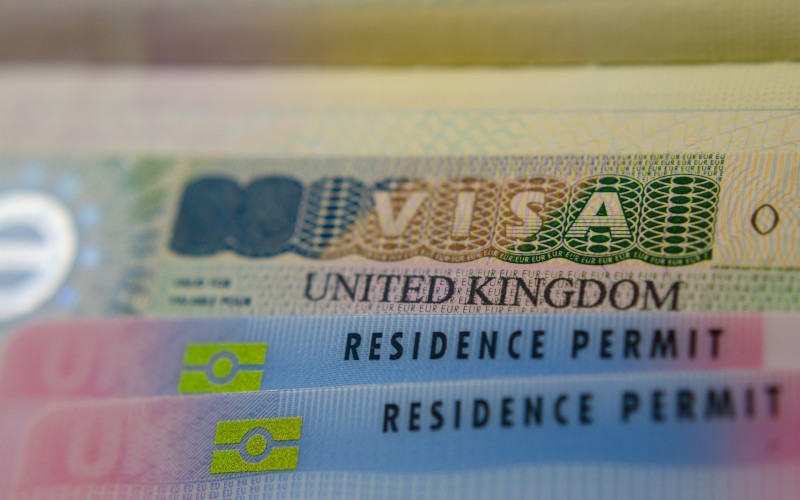
Immigration law is always a dynamic and fast-changing area, and practitioners, individuals and businesses alike will be looking to our new government for signs of what is to come in 2023.
The two-time Home Secretary, Suella Braverman, has promised that significant reforms to the immigration system are on their way. The stated objective is to streamline and modernise current processes, while reducing overall net migration. In this blog, we discuss the potential developments that these goals might lead to in the year to come.
Review of the Shortage Occupation List
The Shortage Occupation List (SOL) catalogues the skilled worker roles which are currently experiencing a shortage of recruits in the UK. Individuals looking to come to the UK to undertake a role on the SOL benefit from a lower salary threshold, reduced application fees and potentially a relaxation of the skill level requirement. The list is devised by the UK government but draws upon recommendations made by the Migration Advisory Committee (MAC), a non-governmental body tasked with monitoring migration issues. Recently, there have been calls for the SOL to be updated in light of the labour shortages that have afflicted many industries in the last few years. In spring 2023, the MAC will publish a review of the SOL, including, amongst other issues, whether particular roles should be added or removed.
Aside from lobbying and publicity campaigns, there is currently no formal process through which employers can request that roles be added to the SOL. This will form part of the MAC’s assessment, and stakeholders will be invited to give comments during the reporting stage. This is an excellent opportunity for businesses to have their say. Many feel that the Home Office needs to do more to consider industry views and ensure that business’ needs are supported.
It is important to note that even if the SOL is expanded to include more roles, these positions are only open to Skilled Worker and Health and Care Worker visa holders, which are long-term visa routes. It will not offer a solution for those businesses seeking staff to fill temporary, seasonal or low skilled positions. The minimum skill level for a job on the SOL is RQF-3, which equates to A-level or national equivalent. In February 2022, in response to the pandemic, care workers were added to the list. This role is considered to be lower than RQF-3 level, but is still eligible for sponsorship on the Skilled Worker route due to being listed as a shortage occupation.
At present, this remains the only role lower than RQF-3 level on the SOL, and this addition is set to be reviewed by the government in February 2023. It seems likely, however, that the inclusion of care workers on the list will be extended beyond this deadline.
The government has since made it clear that jobs at the same skill level will only be added in exceptional circumstances. Those in the hospitality sector, or other industries experiencing significant difficulties in filling roles traditionally deemed ‘low-skilled’, may find that any changes to the SOL are geared towards more specialist roles. In any event, the MAC will not be publishing its report until the end of March 2023, and it will be at least Autumn 2023 until any recommendations are put into action by the government.
An increase in sponsor licence applications
All overseas nationals looking to work in the UK first require to be sponsored by their employer, which in turn means that the employer must hold a sponsorship licence. Without doubt, the number of sponsor licence applications will increase in 2023, as more and more businesses look to counter domestic labour shortages by employing individuals from overseas.
Sponsorship licenses are granted by the UK Immigration and Visa services and there are two types of licence. There are two types of licence, the Worker Sponsor licence and Temporary Worker Sponsor licence. The Worker sponsor licence permits employers to sponsor non-UK nationals for skilled or long-term employment and the Temporary Worker licence applies to specific types of temporary employment, such as seasonal agricultural work. Currently, the most commonly applied for work visa under the Points Based System is the Skilled Worker visa, which is open to overseas nationals who have received a job offer in a skilled, long-term role in the UK from a sponsored employer. For more information on what a sponsor licence is and whether your business might need one, have a look at our previous blog.
Increase in illegal working checks
In setting out his immigration objectives for 2023 and beyond, Rishi Sunak announced that he would ‘increase raids on illegal working by 50%’. This makes it all the more important for employers to be up to date on how to carry out full and proper right to work checks, which we have outlined previously here.
Businesses that employ individuals without the right to work can face serious sanctions, including a civil penalty of up to £20,000 per unauthorised worker, enforced closure of the business, disqualification as a director, seizure of earnings and the possible revocation of the employer’s sponsorship licence. The Home Office also publishes a list of non-compliant employers, and businesses will find it extremely difficult to regain their sponsorship licence if included on this list. In serious cases, employers may face a criminal conviction, which carries a maximum sentence of 5 years and an unlimited fine. The threshold for criminality has been lowered from ‘knowingly’ employing someone illegally, to having ‘reasonable cause to believe’ that the person does not have the right to work.
Carrying out valid right to work checks will provide employers with a ‘statutory excuse’ to any Home Office enforcement action taken due to illegal working. It is therefore crucial that employers are clear on their duties in this respect and keep a secure record of all checks carried out. During the pandemic, the UK government introduced adjusted right to work checks, so that businesses could carry out checks remotely. Employers were permitted to accept scanned copies or photographs of documents and then ensure these matched the employee over a video call. On 30 September 2022, these temporary measures came to an end. Any right to work checks carried out in this way after this date will not be valid and will not provide the employer with a statutory excuse. Going forward into the New Year, employers must be up to date on what is expected of them in ensuring all employees have permission to work in the UK.
Changes to the student dependent visa
In pursuing her ambition to reduce immigration to the UK, Suella Braverman has suggested that she may seek to limit the ability of foreign students to be joined by their family members on the Student Dependent visa.
Currently, individuals who are undertaking a postgraduate course and hold a Student visa can apply to be joined by their dependents (meaning a partner, spouse or child), so long as the eligibility requirements are satisfied. Dependents are also required to prove that they can maintain themselves financially. The current threshold to be met is £680 a month per dependent (£845 within London). Students applying for their own visa at the same time as their dependents must be able to demonstrate that they can pay for their course, support themselves financially, and meet the maintenance requirement for each family member. This is already a barrier to many, but reports suggest that the £680 maintenance requirement may be increased in a bid to lower the number of applicants.
Additionally, the government has also indicated that it is considering introducing a cap on how many visas are granted to overseas students. Universities and employers alike may well be concerned by these plans. Limiting the number of overseas students could have a significant impact on the international talent pool in the UK and a reduction of the number of Graduate visa applicants will be a likely corollary to this.
The Graduate visa is a useful stepping stone for students that wish to stay in the UK to work but haven’t yet secured a job offer, as there is no need to be sponsored by an organisation or employer. Those who do want to work can do so at any skill level and for any salary. Graduate visa holders can stay in the UK for up to two years, or three if they have completed a PhD.
The flexibility of this route is beneficial for employees and employers alike. As there is no skill requirement for the job offered, employers can hire Graduates into entry level roles that would otherwise be excluded from the Skilled Worker route. Moreover, businesses can hire a Graduate without first incurring the time and expense of applying for a sponsorship licence if they do not already have one. Some businesses may feel this is too significant an investment to embark on when hiring a new employee. For Graduates at the start of their career, they may prefer not to be tied down to a three or five year contract, as they would be under the Skilled Worker route. Where a business does wish to continue a Graduate’s employment beyond the expiry of their visa, the employee can switch to the Skilled Worker route from within the UK, so long as the employer obtains a sponsor licence.
2023 looks set to be a year of changes across the board. At Thorntons, we have extensive experience of assisting clients in all areas of Immigration Law. If you have a query or seek advice, please contact our specialist Immigration team on 03330 430350.
